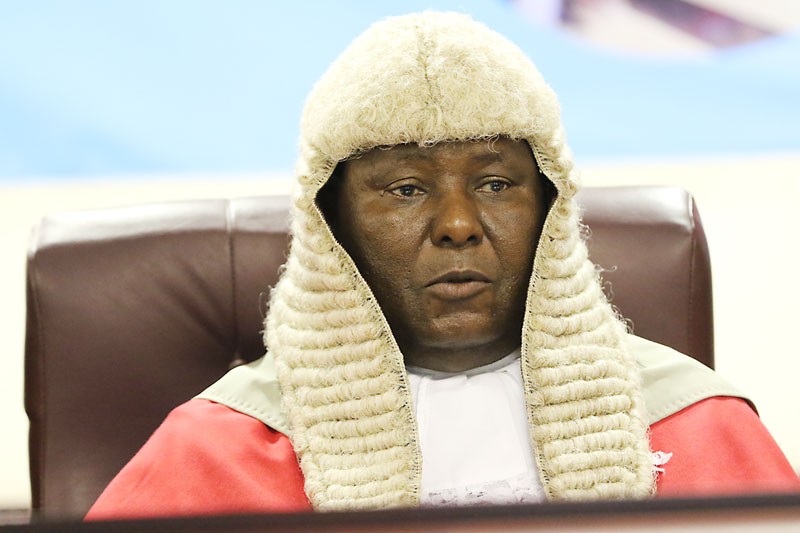Six CoA Judges declared constitutionally invalid
Mpho Mokwape | Friday February 17, 2017 18:00


In a landmark judgement, Justice Abednigo Tafa ordered that the appointment of Isaac Lesetedi, Monametsi Gaongalelwe, John Foxcroft, John Cameron, Arthur Hamilton and Craig Howie was invalid in that the President had no right to reappoint them to the bench.
“The applicants have locus standi to bring this application before court. The constitution does not permit the President to exercise discretion as to whether or not to reappoint a Justice of Appeal,” he said.
The judgement follows a challenge by the National Amalgamated Local and Central Government and Parastatal Workers’ Union (NALCGPWU) against President Ian Khama on his appointment of the CoA Judges. The Union argued that no Judge should be reappointed after a fixed term.
The Union had taken Khama to court challenging the appointment of the initially seven CoA Judges. At the time, the now late Elijah Legwaila was one of the appointees before he resigned from the bench. They were also challenging the constitutional validity of Section 4 of the CoA Act in so far as it delegates, to the President, Parliament’s constitutional powers to determine the number of Justices.
Tafa explained that the appointment of the Judges on more than one three-year fixed term contract was unconstitutional maintaining that Section 4 of the CoA Act was constitutionally invalid therefore struck down.
He said he was in agreement with the manual workers union’s contention that a Judicial independence and impartiality were deeply held values entrenched in Section 10(9) of the Constitution.
“It is not the integrity of the incumbents in this case that is being questioned. I can say without the slightest fear of being contradicted that the Justices of Appeal who are cited as respondents are men of impeccable integrity and intellect. However, what is at stake here is a principle for tomorrow it could be a completely different set of justices of appeal,” he said.
Tafa said there was merit in the manual workers’ contention that the provision ‘provides’ by a way of exception to a normal situation (that the Judges may only be required to vacate their office on attaining the age of 70 years), that a person may be appointed for a fixed term of three years.
He explained that the drafters of the constitution must have intended by the provision that in exceptional cases, a Judge could be appointed for a non-renewable single fixed term period of three years.
“It is in this regard the same as the word ‘qualified’. My opinion is that the words ‘if qualified’ must be interpreted to preclude the reappointment of a Justice of CoA who in terms of Section 101(1) may be appointed for one fixed term period of three years. Otherwise, he or she is not qualified to be reappointed,” he explained.
However, Tafa suspended the operation of order 2, which struck down Section 4 of the CoA Act for a period of six months to allow the necessary steps to ensure that the appointment of the six Judges, who have not been reappointed after the expiry of the three-year fixed term contracts, are regularised.
On the number of Justices to be appointed to the bench, Tafa said it was a matter of high policy to decide on the size of the CoA, which required robust debate in Parliament borne out of the provisions of the High Court Act.
Tafa argued that there was no plausible reason why Parliament deviated from the policy when it came to the maximum number of the Justices of the CoA, as the same consideration should have prevailed.
“It would have been a different matter had Parliament in conferring the powers it did on the President under Section 4, made it clear that the said powers were exercised by a statutory instrument,” he said.
He maintained that that would have ensured that Parliament retained the ultimate authority on the matter since it would have the power to either approve or annul the statutory instrument. Tafa noted that in this case, Parliament clearly abdicated its lawmaking power and that no boundaries were set by the House for the exercise by the President of the delegated power.
“As it is, the President is left to invoke his executive power to determine from time to time whether to appoint additional Justices of the CoA with the sky being the limit,” Tafa said.
